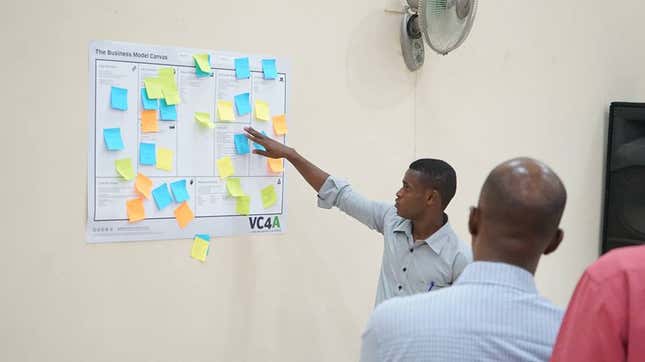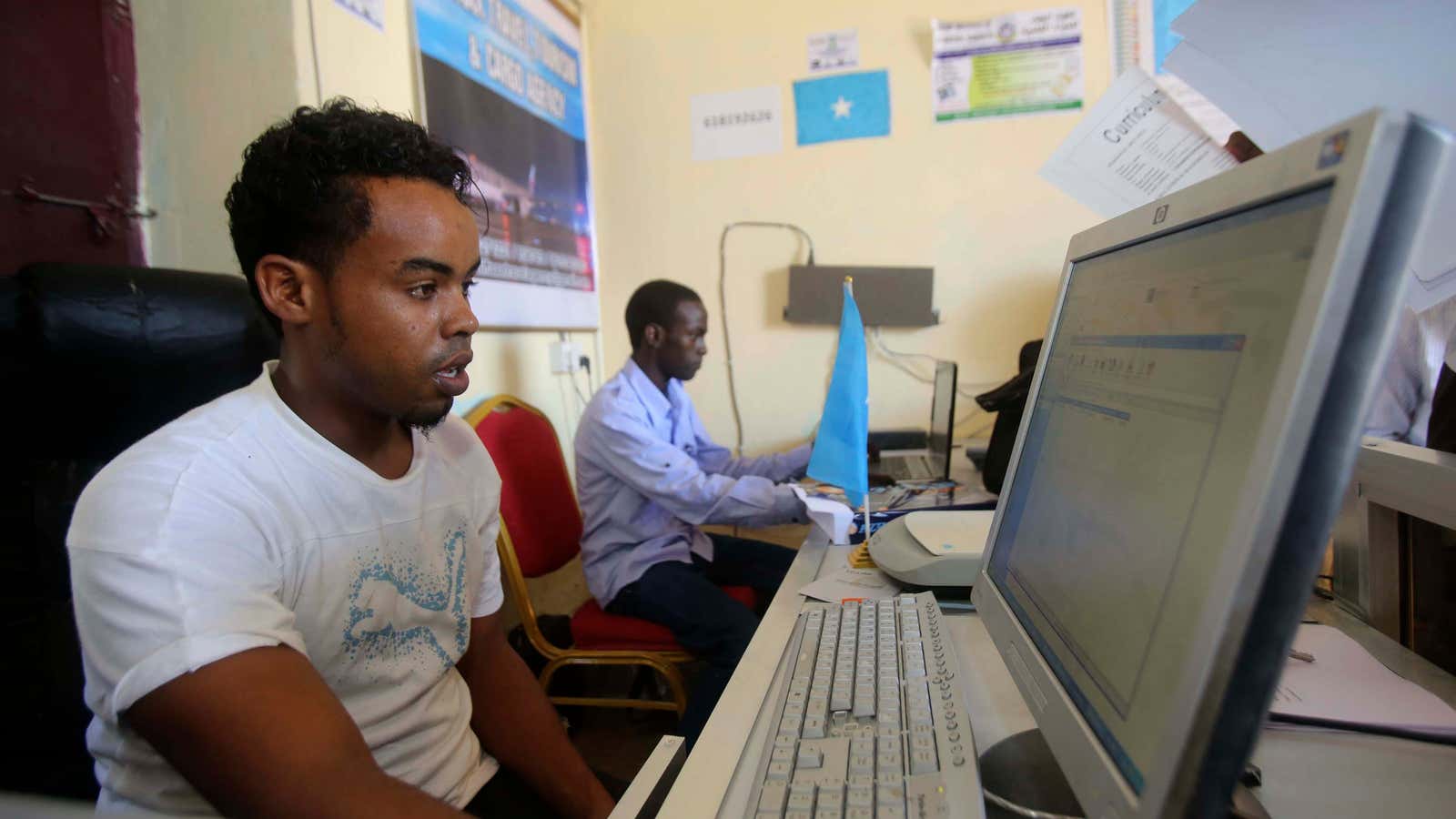After living and studying in several Asian countries for 7 years, Mohamed Abdilahi Dahir came back to Somalia without a plan on what to do next. When he started asking around for information about start-ups and investment, he couldn’t find anyone to guide him. To better understand the market, he enrolled in a business administration program at a local university in Hargeisa, the capital of Somaliland region.
Early this year, Dahir (no relation of the writer) started Better Business Solutions, a consultancy that helps coach entrepreneurs. The company assisted young enterprises to develop business plans, conduct market research, and approach financiers. Dahir and his team also heeded their own advice and started pitching some of their ideas to investors. It was only a matter of time before opportunities came calling.
In early October, their electronic payment project dubbed ePocket, was selected from a pool of 160 applications to be part of the 12 inaugural projects nominated for the 2016 Innovate Accelerator program. The program was organized by Innovate Ventures, the first ever Somali tech accelerator, alongside the pan-African startup funding platform Venture Capital for Africa, alongside British aid organization Oxfam.
EPocket is expected to connect mobile money users to international online banks, enabling users in the country to shop, pay their subscriptions and tuition fees online. Dahir’s project was selected alongside others like Guri Yagleel, an online rental and property management program; Hargeisa Daily, a media management software; and Xasuus Reeb, an online wedding and event planning service. After an extensive 10-week training, the top three ventures will receive equity funding of up to $15,000.
“The whole world has gone online and we need to join everyone else,” Dahir told Quartz.
Bedeviled by war and factional violence, Somalia was one of the last African countries to go online in 2000. At 1.8%, the Horn of Africa nation also has one of the lowest internet penetration in the world. But as the dust settles from a two-decade civil war, many of its young people—alongside those who returned from the diaspora—are trying to come out of isolationism by using technology as a bridge to tap into the global economy.
The country’s high-speed, fiber optic internet, connected in 2013, is enabling some of this transformation, facilitating the organization of global conferences like the Mogadishu and Hargeisa Ted Talks and the Social Good Summit. StartUp Grind, a global community which nurtures startup ecosystems in 85 countries and is supported by Google, has its newest branch based in Mogadishu.

Years of instability and no banks have also turned Somalia into a cashless society where mobile money is prevalent. That avenue is now being used for crowdfunding by entities like Fursad Fund, the country’s first independent trust fund. The fund is targeting 5,000 Somali donors who will each pay $1 per day, totaling $365 per year that will then be used to finance programs in job creation, poverty reduction, education and infrastructure development. The fund has so far collected almost $42,000, which has supported female entrepreneurs and a job fair (in Somali) aimed at marching local companies with job seekers.
These kind of initiatives are also now attracting financiers who are interested in promoting, funding and connecting Somali startups. Abdigani Diriye is a research scientist with IBM and the founder of Innovate Ventures. Sensing the changing landscape in the country, Diriye started working with young graduates in 2011 by arranging coding camps and providing mentorship sessions on product development and pitching.
Helping young developers interact with experts in the field Diriye said, “creates huge amounts of enthusiasm and is a great reference point.”
However, the big challenge is how tech entrepreneurs can not only develop programs but also monetize them. Somalia has one of the highest unemployment rates in the world—67% for youth between 14 to 29 years—according to the United Nations Development Program. The country also lacks local banks, businessmen or formal networks dedicated to supporting the tech ecosystem.
One group already looking at this is Kenya’s iHub, which trained 90 Somali refugees for four months on how to develop android applications. As the repatriation process for Somali refugees from Kenya to Somalia goes underway, Gladys Kitony, a programs manager with the hub said that they saw the training “as an opportunity to foster technology as an enabling tool for refugees to earn a livelihood and become self-reliant.”
In the long run, Diriye says that entrepreneurship, particularly in the digital sector, can create solutions to many of the challenges facing Somalia. “By providing them with all the necessary tools and support mechanism, we can say that we are laying the foundation for a vibrant economy in the next 10 or 20 years,” he said.
